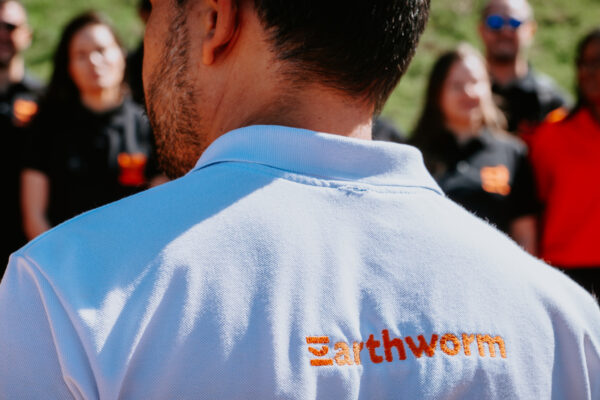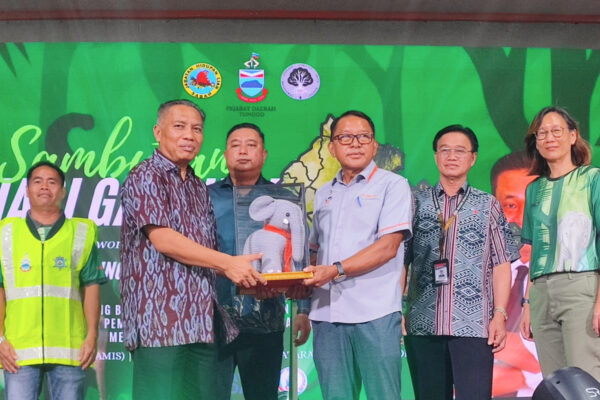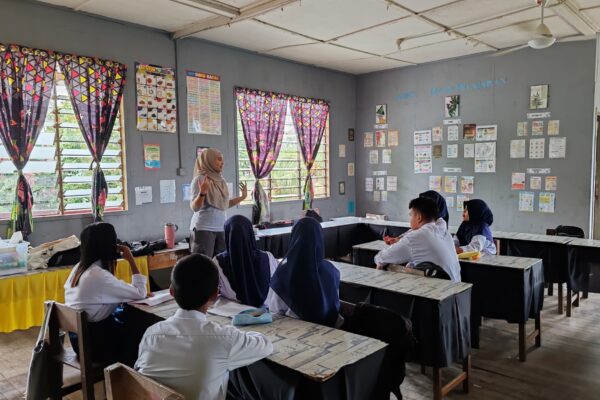With support from Nestlé, Earthworm Foundation has established the Son My Acacia Growing Club and is training Vietnamese farmers to increase their income by as much as 20 percent.
The status quo
In Son My commune, there are around 1,000 farmers who manage over 2,500 hectares of acacia tree plantations. Well-suited to the coastal sandy soils of the area, acacia was introduced to the commune a long time ago and is important to many families’ incomes.
Acacia farmers in this region had never received training on how to improve their plantations. Instead, farmers mostly learn from each other, experimenting and learning through trial and error. Very seldom do they reach out for support. The result is that common mistakes are repeated, reducing yield and profit. To make a difficult situation worse, conventional practices – like repeated ploughing and burning – deplete soil fertility and lead to a cumulative loss of production.
On the other hand, the government has limited resources to train and support farmers individually, especially given that farmers are dispersed.

From little things, big things grow
In November 2017, Earthworm Foundation – through Rurality, its farmer resilience programme – began working in the Son My commune. We first completed a Rural Dynamic Diagnostic to understand the situation on the ground and set the baseline, after which we began supporting farmers in 2018. The first objective was to introduce farmers to best management practices, innovative agronomic and silvilcultural practices. Training was provided by experts from Vietnam’s leading forestry institute, the Forestry Science Institute of Southern Vietnam (FSIS). This was done in combination with study tours to demonstration sites and coaching from our field team to help farmers adopt good practices on their plantations. In collaboration with FSIS, who provided up-to-date technical expertise from country-wide research stations, we trained 229 farmers. In 2019, we saw signs of change, with the first farmers planting 26,000 high quality seedlings.
After the first round of training, our plan was to replicate the training throughout Nestlé’s supply chain to Cat Phu Vung Tau, the partnering chip mill. There were challenges to doing this though – the large number of dispersed farmers in the supply chain, a lack of support from traders, and the time required to garner trust and change deep-seated practices.
In light of this and taking inspiration from Nestlé’s Nescafe Plan in Vietnam, we decided to pilot a different approach. In January 2020, Earthworm collaborated with the Farmer’s Union of the Son My commune to establish the Son My Acacia Growing Club, a local farmers group. The club started with seven members who are dynamic, ambitious, and keen to learn and share new ideas. The club is a platform to connect lead farmers, exchange knowledge and spread good practices throughout the community.

The club is also the foundation for a farmer-to-farmer training model. The model involves identifying and training ‘farmer trainers’ on plantation management, soil conservation and marketing, and supports the community-based transfer of technology and knowledge to farmers.
Selecting the right farmer trainers is key to the approach. Once selected, we provide monthly training to the trainers, supporting them in group and individual and coaching to other farmers throughout the year. Farmers can access training materials anytime via the project Facebook page, along with market information and tips. The movement created through this model is setting up a generation of acacia farmers with the knowledge and skills to succeed.

The potential
The low cost and ease of implementation means this model has potential to scale-up. Despite the COVID-19 pandemic, training has continued, albeit at a smaller scale than planned.
From the 26,000 seedlings planted in 2019, this has grown to 225,000 seedlings in 2020 – all in large part through the work of the Acacia Growing Club. The seedlings are from one of the best nurseries in southern Vietnam and represent the first step in helping farmers increase household income by 20 percent.
"This is the best thing to happen in a mainly acacia-growing commune like Son My,” said farmer trainer Mr. Hoat. “It helps bring innovations and best practices, and supports many farmers in applying these innovations the correct way."
Although initial results are positive, the approach isn’t without its challenges. The biggest hurdles are funding and finding lead farmers with the willingness and time to become trainers. Although the operational cost per farmer trained is low, the model requires financial support to continue and scale-up. Earthworm believes there is scope for farmer trainers to earn additional income through the approach that would incentivise an expansion of the model, such as the trading of seedlings, which began to emerge in 2020.
“This year's results tell us that the model can scale-up across pulpwood supply chains in Vietnam,” said Dale Garner, who leads Earthworm’s work in the Greater Mekong region. “With this project, we want to build a foundation of continuous support for farmers.”

Through our Rurality programme, Earthworm Foundation has been working with acacia farmers in Nestlé’s supply chain in Vietnam since 2017. Rurality was launched globally in 2015 to drive transformation and innovation at the farmer-level; with the mission of empowering farmers to strengthen their resilience and improve their livelihoods.
If you are interested to learn more about how your company can support acacia smallholders in your supply chain, contact Earthworm Foundation at info@earthworm.org.


